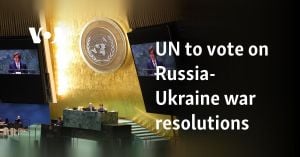The political atmosphere in Southern Italy is witnessing significant shifts as regional elections loom on the horizon, particularly with the pivotal involvement of influential figures such as Mario Turco from the Movimento 5 Stelle (M5S). Recent developments indicate a heightened urgency among political players, reflecting the need for new leadership amid changing public sentiments.
With the elections set for this coming autumn, the stakes are especially high following tumultuous times marked by the resignation of numerous city council members, especially notable in Taranto where 17 out of 31 councilors stepped down last Friday. This unexpected turmoil—including resignations similar to those witnessed recently in Matera—compels the political scene to adapt rapidly to the electorate's call for stability and effective governance.
Central to these discussions is Mario Turco, who has emerged as a possible candidate for the governorship. Relying on the backing from both the M5S and potential alliances with the Democratic Party (PD), Turco's profile as a political figure is being fortified as speculation mounts around his leadership candidacy. Previously serving as the undersecretary of state for economic planning, Turco is viewed as someone who could unite the fragmented political alliances within Basilicata and potentially address the pressing socio-economic challenges faced by the region.
These regional elections mark not only the chance to redefine local governance but also signify the shifting sands of political alliances. Discussions about coalition strategies are gaining traction, particularly concerning the pivotal Taranto municipality and how it relates to other surrounding areas, including Matera. Turco's potential nomination is framed as part of broader discussions with PD on forming stronghold connections within this complex regional ecosystem—one starkly impacted by fluctuated local governance dynamics.
"Questo è un governo che calpesta qualsiasi regola, anche istituzionale e legislativa..." commented Turco last week, criticizing the handling of major issues such as the infamous Ilva steel plant crisis. His remarks highlight the overarching concern around how current governmental decisions rest upon fragile legislative frameworks, reflecting dissatisfaction across the electorate.
The Ilva situation itself remains contentious as new decrees put forth by the government, led by Giorgia Meloni, are met with scrutiny. Turco pointed out significant gaps within the legislative process, questioning the quality of solutions presented. The M5S senator’s critiques center on the continuous dependence on coal production amid dire environmental calls for reform. "Il disegno di legge 'salva Ilva' del governo Meloni è stato bocciato sotto il profilo della qualità della legislazione," Turco stated, elaborately dissecting how legislative actions fail to meet the region’s urgent needs for change.
His arguments are pivotal, especially as they resonate with the public mood, which leans heavily toward candidates who present credible solutions to enduring challenges. The upcoming elections represent more than just political repositioning, but also the electorate's desire for honest leadership unencumbered by previous controversies, as typified by the political strife surrounding former mayor Rinaldo Melucci.
Public opinion polls indicate oscillations of support among political parties, with recent trends favoring the M5S. Therefore, as the region gears up for elections, many eyes are focused on candidates who can connect with the constituents on pressing issues—from environmental concerns complexly intertwined with economic needs to historical grievances of past governance.
Though uncertainty fills the air, the narrative surrounding the upcoming elections suggests voters are increasingly assuming their agency, pressing for representation aligned closely with their expectations. The shifting political winds, encapsulated by the candidacy of figures like Mario Turco, symbolize not only resilience but also hope for systemic reform across Southern Italy’s governance.
With the dynamics of regional politics poised for transformation, the eyes of the electorate remain vigilant as alliances are forged and challenged, all ready to usher in what many hope will be a new chapter for Southern Italy's political future—one attuned to the voice and demands of its people.



